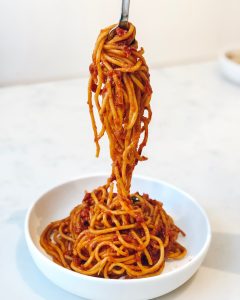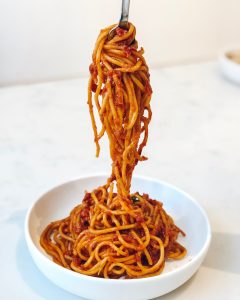 Low-carbohydrate diets will often lead to weight loss over a short period of time. This is why it is often more successful compared to low-fat diets. But is this because of the effect that carbohydrate restriction has on food cravings and eating behaviour?
Low-carbohydrate diets will often lead to weight loss over a short period of time. This is why it is often more successful compared to low-fat diets. But is this because of the effect that carbohydrate restriction has on food cravings and eating behaviour?
Background
Food cravings – the intense desire to consume a particular type of food is difficult to resist – can play a significant role in weight gain.
Food cravings can differ between men and women. Studies suggest that men report stronger cravings for high-fat and fast-food fats, whereas women craving sweeter foods.
Many people who are overweight or obese assume that dieting increases their food cravings. However, most of the research demonstrates that cravings are reduced during energy restriction.
Low-carbohydrate diets have been found to cause greater weight loss in the initial 4 weeks. However, there are few studies to show how a low-carbohydrate diet affects food cravings and eating behaviours over the first 4 weeks.
Researchers designed a study to examine this relationship, as well as looking at any differences in food cravings and food behaviours between men and women.
The study
The research conducted was a secondary analysis of a parent study exploring carbohydrate restriction and vascular stiffness.
Participants were aged between 30-55 years, with a BMI between 27-40kg/m2. They were considered sedentary to moderately active, and had either characteristics of insulin resistance or metabolic syndrome. Exclusion criteria included diabetes, consumption of >5 (for women) or >10 (for men) standard alcohol drinks per week, tobacco use, dietary regimens or requirements that precluded the prescribed diet, and a history of clinically significant diseases.
The low-carbohydrate group consumed 1500kcal/day, including 20-25g of net carbohydrates per day. The diet had macronutrient ratios of approximately 14% carbohydrate, 58% fat and 28% protein.
For the first two weeks, all food was provided, along with instructions for how to prepare and cook compliant food. Before and after the intervention, specific and total cravings were measured, along with eating behaviours.
20 participants were assigned to the low-carbohydrate diet group in the original study. Of these, 19 had complete data for food cravings and 18 had complete data for eating behaviours.
The findings
By week 4 of the intervention, food cravings had significantly reduced. Women had significantly greater sweet craving reductions compared to men.
In terms of eating behaviours, reported dietary restraint had increased by 102%, while disinhibition reduced by 17% and hunger by 22%.
One association of note was that those who lost the most weight experienced the least reduction in fat cravings. This suggests that those who crave high-fat foods may find a low-carbohydrate approach to be effective for weight loss.
Conclusions
The researchers concluded that a low-carbohydrate diet promoted significant weight loss over a short period of time. It resulted in significant reductions in specific cravings, total cravings and hunger, as well as increasing dietary restraint.
Women exhibited greater reductions in sweet cravings compared to men. Dietary strategies that aim to reduce sweet food cravings may need to take sex into consideration.
There was also evidence that those with higher fat cravings may benefit from a low-carbohydrate diet, as it satisfies those cravings.
However, future studies with a larger sample size should be conducted to confirm these findings.
Reference
Anguah, K.O.B., Syed-Abdul, M.M., Hu, Q., Jacome-Sosa, M., Heimowitz, C., Cox, V. and Parks, E.J., 2020. Changes in Food Cravings and Eating Behavior after a Dietary Carbohydrate Restriction Intervention Trial. Nutrients, 12(1), p.52.

